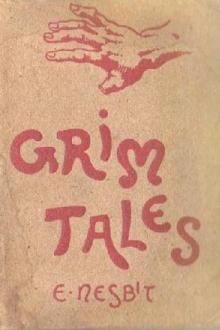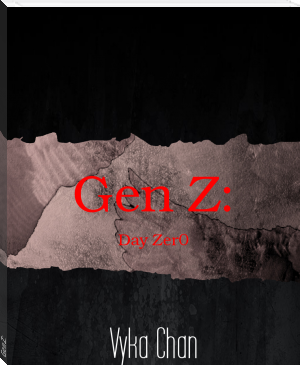Callisto 2.0, Susan English [i love reading .TXT] 📗

- Author: Susan English
- Performer: -
Book online «Callisto 2.0, Susan English [i love reading .TXT] 📗». Author Susan English
She pointed to the bin in the middle of the table. “These are beer balls, like water balls, only more fun.”
I arched my eyebrow. “Are you encouraging me to consume alcohol, Doctor?”
She laughed. “Not to excess, naturally. But a little alcohol every once in a while is fine.”
“Now you have to try them, doctor’s orders!” said Fae, grinning. “Come on, be brave!”
I laughed, and picked up a ball, which looked like a water blob, but filled with an amber liquid. I put it in my mouth and bit down, savoring the velvety, slightly bitter liquid, then swallowed. “Wow, not bad.”
“I’ll take that as a compliment, since they are my creation,” said Fae.
“Huh?”
“Brew master at your service,” she said with a little bow of her head. “Since we already have the fermentation equipment to grow protein, I figured why not produce our own beer, too?”
“Protein from fermentation?” I furrowed my brow. “I’ve never heard of that.”
“It’s an ingenious process which uses electrolysis to produce hydrogen, and a special strain of bacteria feeds on the hydrogen gas, carbon dioxide from the air, and trace minerals. The bacteria produce protein through fermentation. It’s the same technique used to grow the protein which is fed to cultured meat cells, you know, the synthetic lab-grown meat. We’re just bypassing that last step.”
“The protein from the fermentation process is high quality and versatile,” said Gamon, “so there’s no reason to cultivate slabs of meat.”
“Back to the more important thread of this conversation—the beer!” said Fae, grinning. “I send vats of the precious liquid to the Moon, then the crew at Arcadia creates these exquisite little balls.” She held up a blob, eyeing it with affection. “Though soon we’ll be able to do everything here on the station, once Zoe has mastered the cultivation of the algae. At least that’s the plan—total self-sufficiency.”
“A worthy goal.”
“As you see, I’m not always working on food production or babysitting the fusion reactors.”
74
“Oh yeah, you’re the nuclear engineer.” I was still trying to match the station’s jobs with each crew member.
“That’s me.” She popped the blob into her mouth.
“Is it true there’s enough helium-3 on the station to last multiple lifetimes?”
Fae laughed. “Depends on power needs. But we are well-stocked for the foreseeable future. That plus the photovoltaics means energy isn’t an issue.”
“Why not rely exclusively on solar power? Diana said the photovoltaic cells produce more than enough energy.”
“Solar power is great,” said Fae, “but it never hurts to have a back-up plan. And if we ever decide to relocate to another part of the solar system, we would need fusion power to propel the modules. At the moment, the power production from the fusion reactors in each module isn’t enough to run the ship, but we’re working on upgrading the systems.”
“I suppose if the station were located further away from the Sun, the photovoltaics might not generate sufficient power,” I mused.
“True,” Fae said, nodding.
“Are there plans to move the station?”
“I have no idea,” she said, glancing over at Gamon. They exchanged a look that was hard to interpret. Then she turned back to me and smiled. “But you never know with Diana. She likes to think big, and we want to be ready for action.”
Just then the music, which had been playing softly in the background, was turned off.
“Uh oh, it’s that time again!” said Fae.
Gamon shook her head.
“What?” I looked first at Gamon, then at Fae. “What’s happening?”
“Are you a singer?” asked Gamon.
“Huh? Me? No, not even in the shower.”
“Might want to warm up those vocal cords, because that might change in the very near future,” said Fae, then pointed toward the other side of the room with her chin.
Mei Xing was setting up what looked like a karaoke machine. “No way!” I said. “Is that what I think it is?”
“Uh-huh,” said Gamon. “This happens every once in a while. Mei Xing and Rika are both crazy about karaoke.”
I felt my face getting red at the mere thought.
“Don’t worry,” said Fae, patting my arm, “it’s strictly on a volunteer basis.”
The music started, and several women grabbed microphones and began singing. The lyrics were projected onto a screen behind the karaoke machine, the song familiar—it had been popular when I was an undergraduate.
Gamon gave me a nudge. “Sure you don’t want to give it a go?”
I grimaced. “Maybe next time.”
Next thing I knew, Gamon was standing with the other women, belting out the 75
words. Mei Xing and Rika both had beautiful voices. Gamon, not so much, and Andrea, who had also joined in, was conspicuously off key, but it made absolutely no difference.
Everyone was clapping to the beat, laughing with pure joy. The laughter was infectious, and soon I, too, was keeping the rhythm by drumming my hands against the top of my table, feet firmly anchored to the rung of my chair.
Rika pushed herself over to me and thrust her microphone under my chin. I shook my head. She shrugged and pulled her body around, so she was almost sitting in my lap, singing her heart out, looking at me with her big blue eyes. I was laughing so hard I almost lost my footing on the chair rung.
After consuming many more beer balls, buoyed by the liquid courage flowing in my veins, I pushed my way over to the karaoke machine and grabbed a microphone, adding my voice to the din. Almost everyone in the room was singing, and together we sounded, well, awful, but no one cared. I hadn’t had so much fun in … I didn’t know how long.
After a few hours, Mei Xing turned off the machine, and women began filtering out the door. My sides ached from laughing, and my voice was hoarse.
Hadley came up to me and grabbed my hand, her eyes shining. “Did you have fun?”
“Oh my god,” I croaked, “that was incredible!”
“It’s not always this rambunctious. Sometimes it’s really quiet, but every so often things get crazy.”
“It was great!” I couldn’t stop smiling.
“A perfect initiation for your first social.”
I couldn’t have agreed more.
76
I was discovering more about the organization of the station. There was a shuttle to and from the lunar base twice a week, on Fridays and Sundays, bringing supplies and transporting women who wanted to spend the weekend, or even a few weeks, on the Moon. As I had guessed, the laundry facilities on the station were automated, as well as the sterilization of the food bowls. Bots were programmed to perform a variety of tasks, such as restocking towels, workout clothes, and jumpsuits. They also replenished the food and water balls in the dining room, the energy bars in the labs, and were in charge of general housekeeping. They were silent, like little elves—tiny humanoid-shaped machines, working in the background, making our lives easier. Sometimes I would catch a glimpse of one scurrying down a corridor, propelling itself through space with the help of a small jetpack, and equipped with proximity sensors to avoid collisions with the walls or unsuspecting crew members.
In her role as chief scientist, Diana supervised the operation of the station and the scientific research. Every Friday morning, Hadley and I sent her a status report, as did the other scientists and the engineering and station ops teams. She was in close contact with all of us, checking in once a week or so with each crew member via a text message or holochat. She followed our progress, or, as was sometimes the case, our lack of progress, and always had a word of encouragement.
In the mornings, I would often see Izumi in the gym. We both liked to work out early, and usually it was just the two of us. It was a nice way to get to know her a little better.
One day, as we ran side by side on the treadmills, I mentioned she and Diana made a great couple.
She broke into hearty laughter. “It wasn’t always this way,” she confided. “It took some real work to get here, and it wasn’t always easy.”
I looked at her, surprised. “But you seem … I mean, you both seem so happy together.”
“Oh, that we are, but it was a long, uphill battle. We’re both stubborn in our own ways, and it was a struggle to find the middle ground. But somehow, with a lot of love and a little luck, we’ve made it work.”
“Yeah, we all see it,” I said. “You two are an inspiration.”
“We still have our moments, but we’ve learned how to support one another even when we don’t agree.” She paused, looking toward the far wall, strides steady, then she turned to me. “I believe what’s helped make it work for us is we respect each other. I admire her drive, her intelligence, her passion, and she feels the same about me. We share a vision for the future, not only our personal future, but something bigger than ourselves.”
“The Foundation, you mean?”
77
“Uh-huh,” she said, nodding. “And so much more,” she added quietly, almost under her breath, then shot me a quick glance, her face unreadable. She focused her attention on the control panel of her treadmill.
More? What could she possibly mean?
She turned back to me, the inscrutable expression replaced by a smile. “I’m enjoying having a running partner. Diana isn’t much of an early riser.”
Later, back in my quarters, I thought about what Izumi had said about relationships.
Would I ever have the opportunity to cultivate a connection with another woman, like the one Izumi and Diana shared? A genuine one, not my one-sided infatuation for Diana when we had traveled to the Moon together. It seemed like an eternity ago, when I had fallen for her. Had it really been less than two weeks? So much had changed already. I felt compassion for the woman I had been.
◆◆◆
I arrived at the dining room late, having worked until almost eight p.m., as I had done every night since the social. Hadley and I were making good progress on the warp drive specifications, but lots of details still needed to be hammered out. It was a real pleasure working with Hadley.





Comments (0)